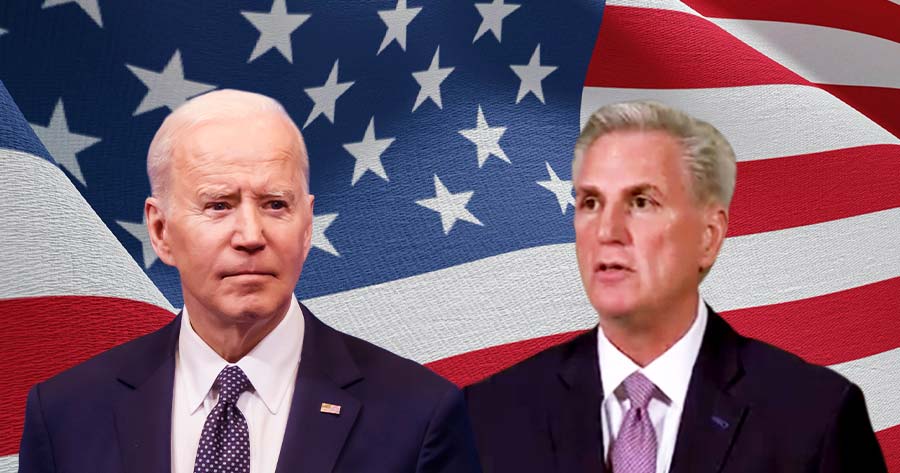The U.S. President Joe Biden and the Speaker of the United States House of Representatives Kevin McCarthy came to an agreement to reach a tentative deal to suspend the federal government’s $31.4 trillion debt ceiling on Saturday evening.
The long standoff between Biden and McCarthy on raising the debt ceiling has put financial markets on a difficult stage, weighing on stocks and even forcing Washington to pay record-high interest rates in some bond sales. Economists and U.S. Treasury Secretary Janet Yellen warned that the default will push the U.S. into recession and send a shockwave to the world economy.
“It has historic reductions in spending, consequential reforms that will lift people out of poverty into the workforce, rein in government overreach – there are no new taxes, no new government programs,” McCarthy said.
The deal would suspend the debt limit through January of 2025, while limiting spending in the 2024 and 2025 budgets, including a claw back on unused COVID funds and speed up the permitting process for some energy projects.
Still, the process is not done, the deal would have to pass the voting of the House, dominated by Republicans with 222-213 seats and Senate with a 51-49 Democratic majority, which would likely take place on Wednesday.
McCarthy urged for a spending cut to slow the growth of the U.S. debt, which is now roughly equal to the annual output of its economy. Meanwhile, the pending cuts that Biden and McCarthy agreed upon are just 0.2% of the U.S. GDP.





